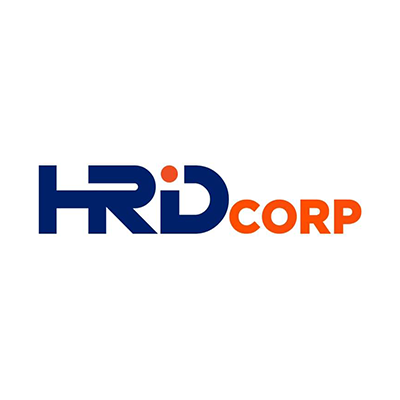- Loading…
- Tiada hasil
Recent Searches
Major Group
1
Managers
Sub-Major Group
15
Information and Communications Technology Managers
Small Unit Group
MASCO Code
1511-44
Compare
Data Analytics Manager
Data Analytics Manager responsible for overseeing the development and use of data systems by identifying and developing efficient ways to organize data store, and analyze data, and paying attention to security and confidentiality.

Alternative Names
Tasks
responsible for gathering, transforming, processing, and modeling data
Representing the department in its dealings with other parts of the organization or with external agencies
Monitoring the selection, training, and performance of staff
creating and enforcing policies to ensure effective data management
responsible for crafting and developing efficient and safe procedures for the analysis and management of data, and paying attention to all technical aspects
developing, describing, analyzing, and validating datasets; verifying and correcting data, models, and reports; implementing, upgrading, and developing data management and visualization tools; and creating models to explain and forecast data
interpreting data and analyzing results using technical statistics; developing and implementing data analyses, data collection systems and other strategies that optimize statistical efficiency and quality; and acquiring data from primary or secondary data sources, and maintaining databases
Performing related tasks
Managing, planning, scheduling and monitoring the assignments of other employees
formulating management techniques for quality data collection and analysis in order to ensure accuracy, adequacy, and legitimacy of data
-
MProfessional, Scientific And Technical Activities
-
JInformation And Communication
-
NAdministrative And Support Service Activities
-
FB-081-5:2012Information Systems Management
-
IT-020-5:2013Computer Systems Management
-
IT-121-5:2011Database Programming
-
Z-011Information & Communications Technology
-
0611Information Technology and Information System
-
0612Software Engineering
-
0613Computer Science
Skills
Basic
Basic ICT
proficiency in using computers to retrieve, access, store, produce, present and exchange information.
Critical Thinking
Proficiency in using logic and reasoning to identify the strengths and weaknesses of alternative solutions, conclusions or approaches to problems.
Monitoring
Proficiency in monitoring/assessing performance of yourself, other individuals, or organisations to make improvements or take corrective action.
Decision Making
proficiency in choosing between two or more alternatives.
Reading Comprehension
Proficiency in understanding written sentences and paragraphs in work related documents.
Specific
ICT Literacy
ability to search, analyze, evaluate, organize, create, use, manage and communicate information to solve ICT problems.
Internet literacy
ability to access, analyze, evaluate and create online content
Machine Learning
proficiency in application of artificial intelligence (AI) that provides systems the ability to automatically learn.
Cybersecurity Assessment
proficiency to identify cybersecurity risk level and determine the maturity of their cybersecurity programs.
Risk Assessment
proficiency in determining quantitative or qualitative risk related to a well-defined situation and recognized threat.
Database Administration
proficiency in managing and maintaining database management systems (DBMS) software.
Data Design and Migration
proficiency in designing database model and migrating the data from source databases to target databases
Food Hygiene and Safety Standard
proficiency in regulation and standard that are designed to protect consumers from the risk of illness caused by eating unsafe foods such as Food Act 1983, Food Regulation 1985, GMP, HACCP etc.
Related Courses
Small Unit Group
1511-01
Chief Information Officer
1511-02
Chief Data Officer
1511-03
Chief Information Security Officer
1511-05
Chief Information Technology Architect
1511-06
Information Systems Manager
1511-08
Village Community Center Manager (Information Technology)
1511-10
Computer Services Manager
1511-11
Data Processing Manager
1511-12
Application Development Manager
1511-13
Data Operations Manager
1511-14
Information and Communication Technology (ICT) Development Manager
1511-16
Internet Service Provider
1511-17
Network Manager
1511-18
Animation Director
1511-19
Audio Visual Manager
1511-20
Database Manager
1511-21
Computer Security Manager
1511-22
Information Technology Project Manager
1511-24
Information Technology Programme Manager
1511-27
Bioinformatics Manager
1511-28
Creative Multimedia Manager
1511-29
Network Performance Manager
1511-30
Network Operations Manager
1511-31
Network Deployment Manager
1511-32
Information Technology Business Development Manager
1511-33
Technology Transformation Manager (IT)
1511-34
Information Technology Support Manager
1511-35
Software Development Manager
1511-36
E-Commerce Application Development Manager
1511-37
Information Technology Governance Manager
1511-38
Building Information Modelling Manager (BIM)
1511-40
Director of Cybersecurity
1511-42
Solution Architect Manager
1511-43
Software Architect Manager
1511-44
Data Analytics Manager
1511-45
Failure Analysis Section Head (System)
1511-46
Content Manager (ICT)
1511-47
Data Manager
1511-48
Management Informatiom System Manager
Kesuma
Hi, I'm KESUMA- to help you with the Malaysia Standard Classification of Occupations (MASCO). How can I assist?

Compare
(/2)

